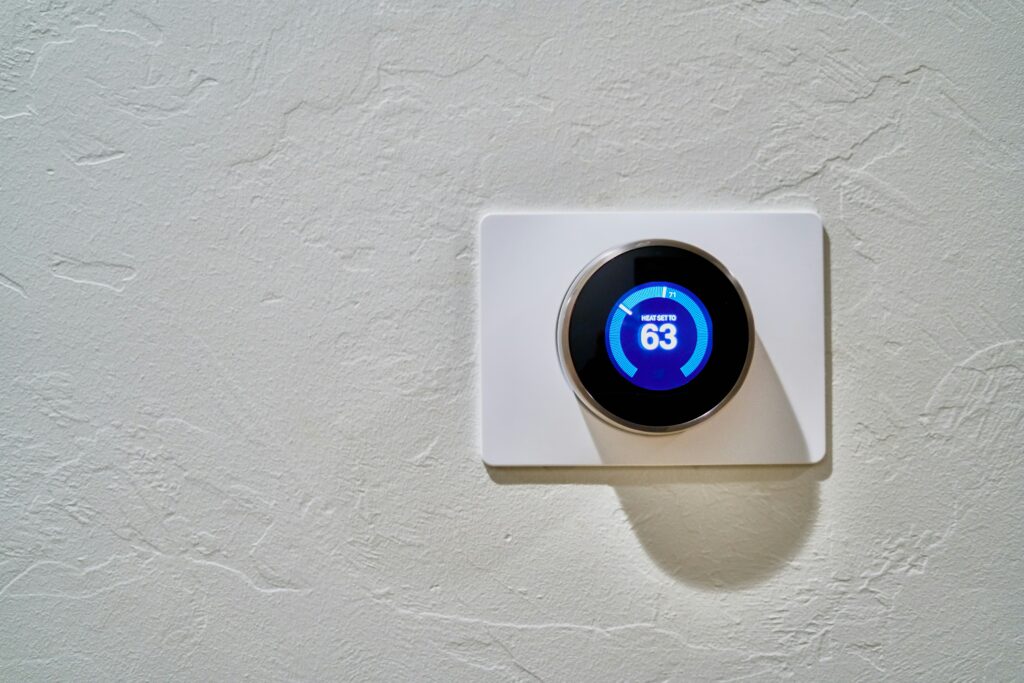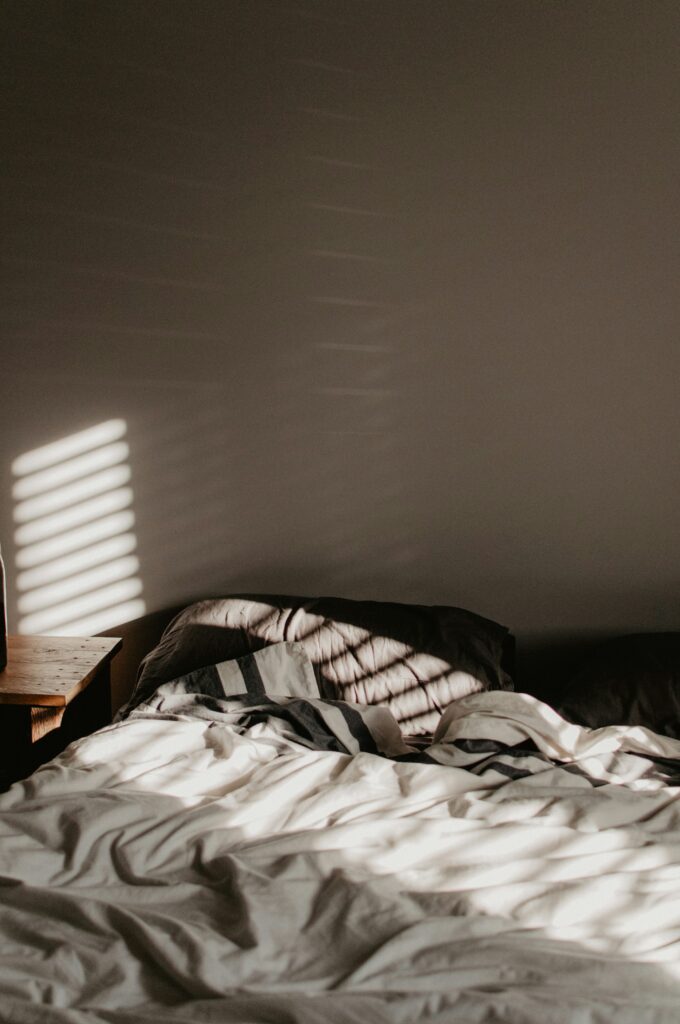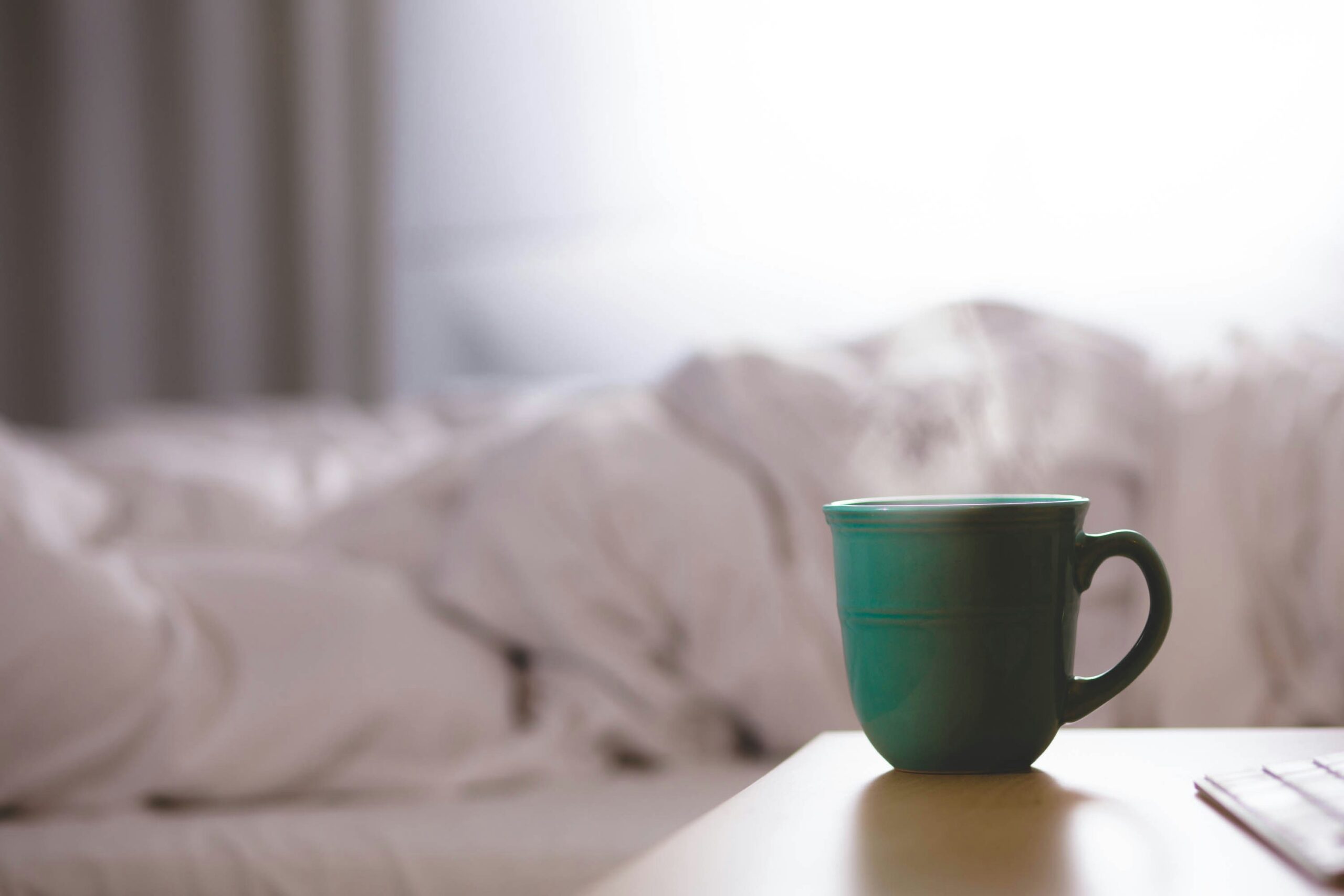Table of Contents
Better sleep begins long before your head hits the pillow. It’s a result of your lifestyle, your routines, your health and the steps you take to transform your bedroom into a sleep sanctuary.
According to Matthew Walker, sleep scientist and author of Why We Sleep,
“Human beings are the only species that deliberately deprive themselves of sleep for no apparent gain. Many people walk through their lives in an underslept state, not realizing it. Every disease that is killing us in developed nations has causal and significant links to a lack of sleep.”
But, getting good sleep doesn’t have to be complicated.
In this article I’m sharing 6 tips that have helped me to consistently get 7 or more hours of restful sleep each night. As with all of the tips I share, I recommend you try one or two to see what works best for you. You might find that a small tweak to your current routine was all you needed.
Top tips for a good night’s sleep
1. Get back up if you can’t sleep
If you’re tossing and turning in bed and having trouble falling asleep, get up and move to another room until you’re ready to sleep. Stressing over not being able to fall asleep won’t help you relax. Just the opposite! Doing the math on how many hours you can still get if you fall asleep now, watching the clock, stressing about oversleeping, etc. – it’s a tough cycle to break and it sends signals to your body that your bed is a place of unrest.
The important thing is to actually get out of bed.
When you move to another room, try a few gentle stretches, journaling, reading or meditating (don’t reach for your phone!). It’s important that your body knows that your bed is for sleep, not restlessness.
I do most of my evening routine in my living room and then move to my bed when I’m ready to turn off the lights and go to sleep. My brain and body know it’s time to fall asleep when my head hits the pillow.
2. Adjust the thermostat
Did you know that the ideal sleeping temperature range is between 60-70 degrees Fahrenheit (15.6-19.4 degrees Celsius)? This temperature works with the natural drop in your body temperature that happens during sleep. Finding the right sleep temperature is a matter of preference and time of year, but don’t hesitate to turn down the heat if you’re looking for a natural way to optimize sleep quality.

3. Create a nighttime routine
Create a ritual or routine around your bedtime – wearing PJs, listening to music, essential oils in the shower, breath work and yoga, etc. Everything you do leading up to bedtime has a big impact on how long it’ll take you to fall asleep and on the quality of the sleep you’ll get that night.
Evening routine tips for better sleep
- Go for a walk after dinner
- Light incense or a soothing candle as you tidy up your home
- Add essential oils to your bath or shower
- Change into your comfiest pajamas
- Sip herbal tea
- Read a paper book for pleasure (something light and captivating)
All of these practices will signal to your body that it’s time to prepare for a restful sleep.

4. Cut screen time
Cutting off screen time is essential for better sleep. That’s because the blue light from your devices can interfere with your body’s natural production of the sleep hormone melatonin and disrupt your circadian rhythm, making it more difficult to fall and stay asleep. Research shows that up to 16 minutes of sleep is lost when you look at blue lights, and that doesn’t account for the time lost when looking at other colors.
The 2-hour cutoff is recommended to ensure that your nervous system has ample time to unwind and fully relax so that you can roll right into a deep sleep.
Darkness promotes better sleep.
You might be thinking, “Of course I turn off the lights to sleep!”…but is your room dark enough? Darkness plays a critical role in better sleep because it signals to the body to release melatonin, the helpful sleep hormone responsible for regulating sleep-wake cycles. We’ve talked about cutting screen time from tablets and phones but this tip takes it a step further: your bedroom must be bat cave dark to get your best sleep.
This means no television, no night lights and as close to complete darkness as your space allows. Turning off lights not only improves sleep quality but also allows the brain to enter deeper stages of rest, supporting memory consolidation, emotional regulation, and overall well-being.
I recommend investing in a set of blackout curtains.
5. Try a breathing exercise
As someone who used to take melatonin before bed, I can tell you that it does work but those crazy dreams and trance-like slumbers aren’t worth it! Better sleep means waking refreshed, not groggy with a headache.
Try a breathing exercise if you’re still feeling tense when you lie down. I recommend matching the length of your inhales to the length of your exhales – breathing in for a count of 4, a brief pause and exhaling for a count of 4. Find a pattern that works for you to help you relax.
Breath work helps your body transition from fight or flight to rest and digest.
6. Track your sleep
If you feel like you’ve been doing all the right things but still can’t seem to get a decent night’s sleep, try sleep tracking. Tracking your sleep with a wearable fitness device helps you gain insights into your sleep patterns such as duration, quality, REM, consistency, etc. Sleep tracking also makes it easier to spot connections between lifestyle habits like caffeine intake, stress levels, or screen time as it relates to your sleep quality.
Over time, this data empowers you to make adjustments that improve energy levels, mood, and cognitive function. Consistently tracking your sleep ensures you stay accountable to your rest needs, supporting long-term health and helping prevent issues like burnout or sleep deprivation.
Don’t walk around in an underslept state. Take a proactive approach to your sleep hygiene with these 6 tips. Be sure to consult your physician if you’re struggling with insomnia or other sleep disturbances.
Sweet dreams.

